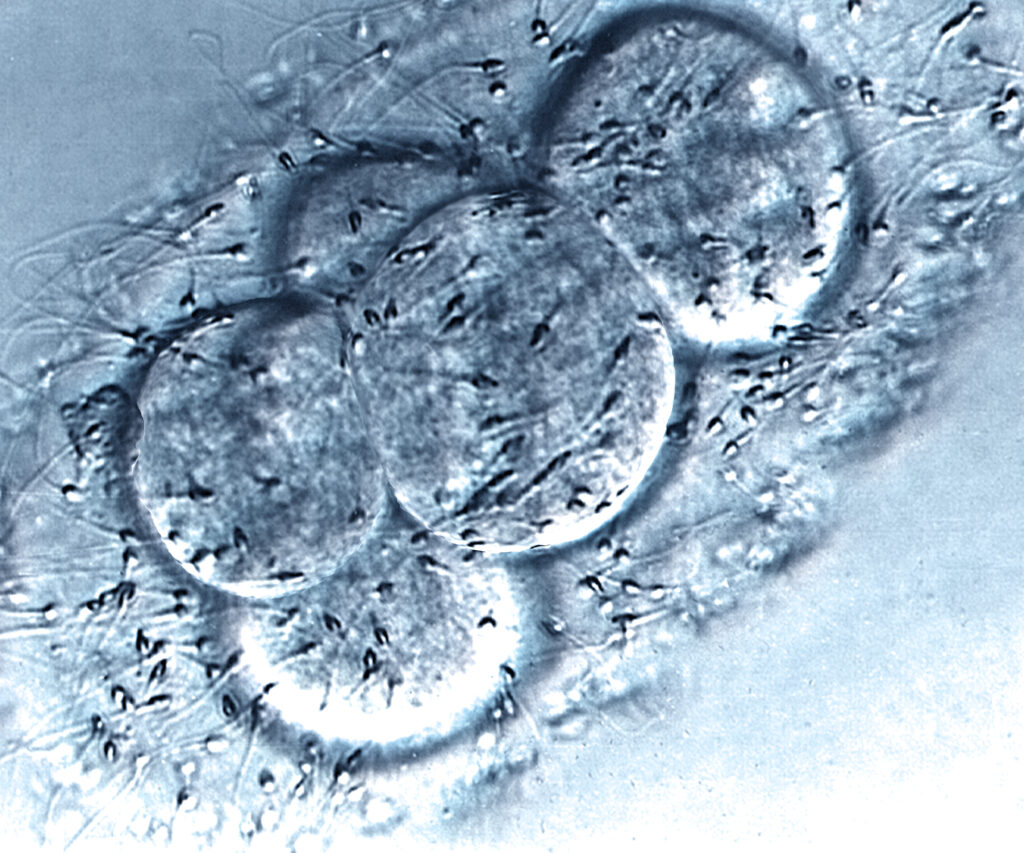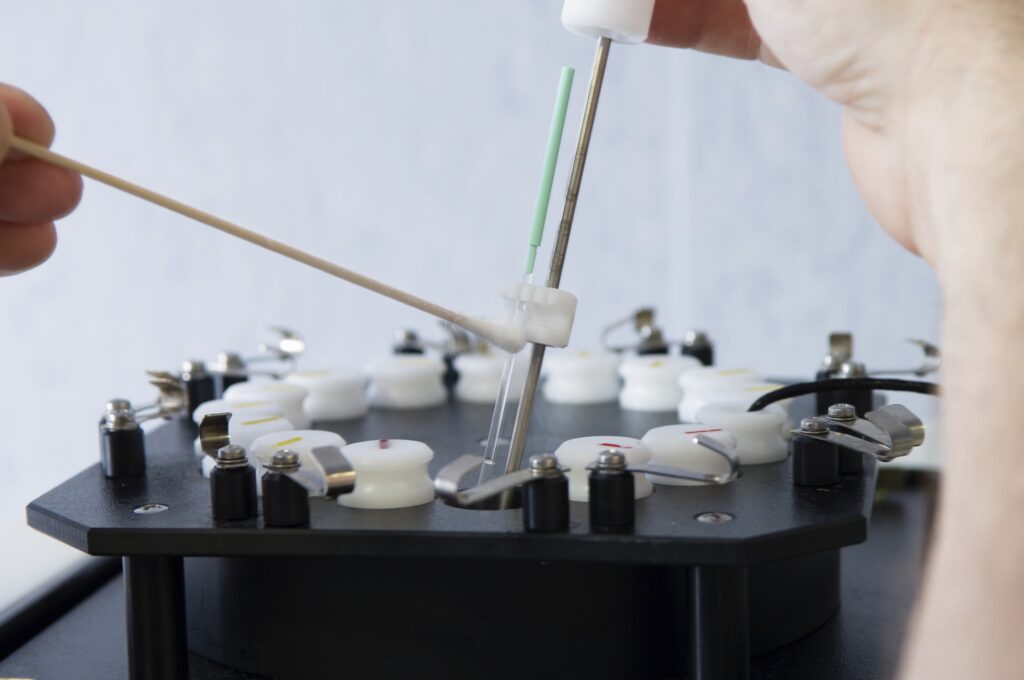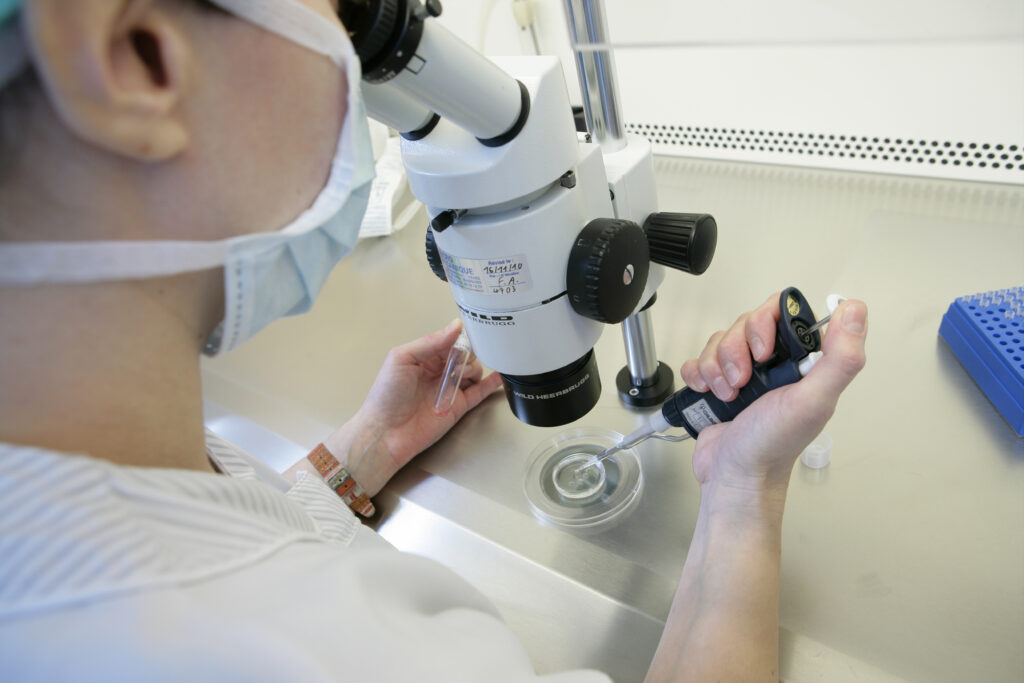Testimony of David A. Prentice, Ph.D. before Institute of Medicine on Mitochondrial Replacement Therapy and 3-Parent Embryos
On May 19, 2015, Dr. David A. Prentice delivered the following testimony before the Institute of Medicine to address the ethical and social issues raised by proposed mitochondrial replacement therapy (MRT) techniques.
To download as PDF, please see “Dr. David A. Prentice Testimony – IOM-Mitochondrial Replacement Therapy.”
Testimony of Dr. David A. Prentice, Ph.D.
Institute of Medicine of the National Academies
Committee on Ethical and Social Policy Considerations of Novel Techniques for Prevention of Maternal Transmission of Mitochondrial DNA Diseases
May 19, 2015
Thank you Dr. Kahn, and I’d like to thank the Committee for this opportunity to provide public comment.
I am commenting in my capacity as a scientist and on behalf of the Charlotte Lozier Institute. I’ll provide more extensive written comments but due to the limited time for oral comment, I’ll touch on just a few points.
First I would like to address the Committee’s question regarding the ethical and social issues raised by these proposed techniques.
– What ethical and social issues are raised by proposed mitochondrial replacement therapy (MRT) techniques?
– Should MRT be considered germline modification?
– Is MRT different, from an ethical or social perspective, from modification of nuclear DNA?
I do believe the Committee should consider these proposed techniques as germline modification, and indeed related to modification of nuclear DNA. It is mistaken to assume that the mitochondrial DNA modifications will not be passed on to future generations when those genetic modifications, as replacements, are made at conception or in the early embryo, as currently envisioned.
The early researchers who did transfer mitochondria-containing ooplasm noted that this was “germline genetic modification”.[1] Current popular terminology refers to these individuals as “3-parent babies”. The U.S. FDA itself in 2002 called this “de facto germ line gene transfer”.[2] If this were not the case, the Committee would not be concerned about follow-up with not only the genetically-reconstructed individuals but also their progeny.
In fact the phrase used — “mitochondrial replacement therapy” – is a misnomer, as it is neither mitochondrial replacement, nor therapy. In point of fact what is being transferred is the nucleus. The two main techniques considered are Maternal Spindle Transfer[3],[4],[5] and Pro-Nuclear Transfer.[6] An additional technique, similar in methods and outcome that may be considered, is Embryo Cell Nuclear Transfer (Blastomere Nuclear Transfer).[7]
The proposed techniques foster human cloning.
All of the proposed techniques foster the same manipulative techniques and skills used in somatic cell nuclear transfer, a.k.a. “Cell Nuclear Transfer”, i.e., human cloning, by micromanipulation of nuclei and of oocytes.
How should current availability of alternative approaches – adoption and egg donation – factor into the assessment of allowing MRT trials to proceed?
It is also misleading to label these techniques as “therapy”.
No existing individual is treated using the proposed techniques. These are all non-therapeutic interventions. Rather, these techniques all create new human embryos with altered genetic composition, genetically engineered individuals who, it is hoped, will not inherit mitochondrial disease. Put another way, these techniques all evince a distinct lack of concern, even a disdain, for those individuals who currently suffer from mitochondrial disease, instead focusing solely on the design of new, genetically-correct individuals to take their place.
An increasing number of alternative possibilities exist, separate from the question regarding creation of new individuals. These include transfer of mitochondria from donor adult stem cells to other tissues,[8] as well as removal of mutant mitochondria via TALENs,[9] or other genetic modifications in existing, even born, human beings. These techniques have distinct potential clinical applicability for individuals with mitochondrial disease. Genome editing techniques using the CRISPR-Cas9 system also show great promise at correcting genetic mutations,[10] and studies using targeted RNA import have shown efficacy correcting human mitochondrial mutations.[11]
Rapamycin drug treatment has shown remarkable success in effectively alleviating the symptoms of mitochondrial disease in a mouse model of Leigh syndrome.[12]
Thank you for your consideration of these comments.
David A. Prentice, Ph.D.
Vice President and Research Director
Charlotte Lozier Institute
[1] Barritt JA et al., Amato P et al., Mitochondria in human offspring derived from ooplasmic transplantation, Human Reproduction 16, 513; 2001
[2] U.S. FDA Biological Response Modifiers (BRMAC) Briefing Document for Day 1, Ooplasm transfer as method to treat female infertility, May 9, 2002; www.fda.gov/OHRMS/DOCKETS/ac/02/briefing/3855B1_01.pdf (last accessed 15 Oct 2013)
[3] Tachibana M et al., Mitochondrial gene replacement in primate offspring and embryonic stem cells, Nature 461, 367, 2009
[4] Tachibana M et al., Towards germline gene therapy of inherited mitochondrial diseases, Nature 493, 627, 2013
[5] Paull D et al., Nuclear genome transfer in human oocytes eliminates mitochondrial DNA variants, Nature 493, 632, 2013
[6] Craven L et al., Pronuclear transfer in human embryos to prevent transmission of mitochondrial DNA disease, Nature 465, 82, 2010
[7] Bredenoord AL et al., Nuclear transfer to prevent mitochondrial DNA disorders: revisiting the debate on reproductive cloning, Reproductive BioMedicine Online 22, 200, 2011
[8] Prockop DJ, Mitochondria to the rescue, Nature Medicine 18, 653, 2012; Islam MN et al., Mitochondrial transfer from bone-marrow–derived stromal cells to pulmonary alveoli protects against acute lung injury, Nature Medicine 18, 759, 2012
[9] Bacman SR et al., Specific elimination of mutant mitochondrial genomes in patient-derived cells by mitoTALENs, Nature Medicine 19, 1111, 2013
[10] See, e.g., Sander JD and Joung JK, CRISPR-Cas systems for editing, regulating and targeting genomes, Nature Biotechnology published online 2 March 2014; doi:10.1038/nbt.2842
[11] Wang G et al., Correcting human mitochondrial mutations with targeted RNA import, Proc. Natl. Acad. Sci. USA 109, 4840, 2012; Comte C et al., Mitochondrial targeting of recombinant RNAs modulates the level of a heteroplasmic mutation in human mitochondrial DNA associated with Kearns Sayre Syndrome, Nucleic Acids Res 41, 418, 2013
[12] Johnson SC et al., mTOR Inhibition Alleviates Mitochondrial Disease in a Mouse Model of Leigh Syndrome, Science 342, 1524, 2013; Vafai SB and Mootha SK, A Common Pathway for a Rare Disease?, Science 342, 1453, 2013























